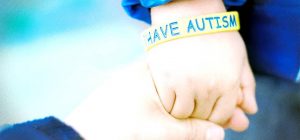
Gathering proper information about every disease is necessary in order to fight with it in best manner. If you are concerned about the child health care then you should be aware about autistic disorder. It is one of the common types of mental disorder which is found in children. Spotting the same is necessary because if the proper treatment is not given on time then it can turn into something even dangerous.
What is Autism?
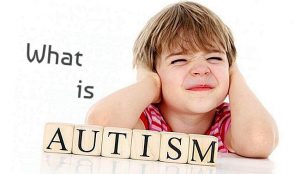
Before we proceed further in the discussion, it is necessary to know what autism is. Autism, or autism spectrum disorder, refers to a range of conditions characterized by challenges with social skills, repetitive behaviors, speech and nonverbal communication, as well as by unique strengths and differences.
We now know that there is not only one autism case but many types, caused by different combinations of genetic and environmental influences. The term “spectrum” reflects the wide variation in challenges and strengths possessed by each person with autism.
Autism’s most-obvious signs tend to appear between 2 and 3 years of age. In some cases, it can be diagnosed as early as 18 months. Research shows that one in 68 children will be diagnosed with autism spectrum disorder (ASD), a complex developmental disability that affects a child’s ability to communicate, play, learn, and relate to others.
While the symptoms and severity of this spectrum disorder can vary widely between individuals, increased awareness helps parents seek professional guidance early in a child’s life—so that diagnosis and intervention can help children achieve their full potential. These 10 facts about autism should be on every parent’s radar.
Signs of Autism
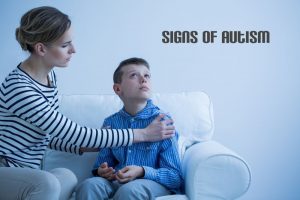
Signs of autism are not clear, or specific, in infancy. Rather, they emerge, usually gradually, and become more obvious in the second and third year of life. Awareness of the red flags of autism can help parents stay on top of their child’s development so that, at the first signs, they may discuss concerns with a professional. A video tutorial on the early signs of autism provides a starting point.
Development of Autism
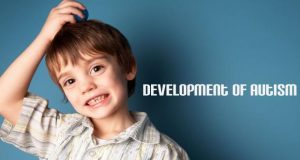
There are different patterns of development in children with autism. Some children display early red flags and are delayed in achieving certain developmental milestones. Others may appear to be developing typically and then show signs of developmental slowing along with atypical behaviors associated with autism. Still, other children “regress”—losing words and abilities they once had.
Early Investigation Helps
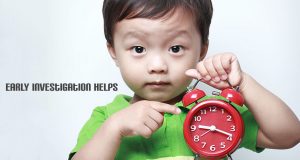
Evidence-based intervention helps. When such intervention begins as early in life as possible, children usually improve in all aspects of development. The most effective early intervention is comprehensive and aims to improve social, communication, cognitive, motor and behavior regulation skills within predictable semi-structured routines.
The use of naturalistic developmental behavioral intervention strategies is recommended. These involve the use of teaching strategies that are responsive to children’s interests along with behavioral principles such as giving clear and appropriate cues to indicate desired behaviors and then rewarding the child’s attempts.
Social Disconnection of Patient
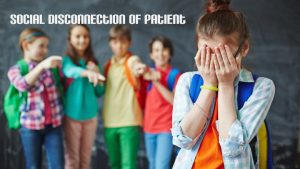
Children with autism may seem socially distant, but they do love their families. Most desire to have friendships but need help developing the social and communication skills to successfully interact with peers. School programs and therapists with special training can often support to children in developing these skills.
Difficulty in Understanding

Children on the autism spectrum who can speak and display high IQs still face “invisible” challenges. They often struggle with abstract language—like understanding humor and figurative language such as metaphors and puns. As a result, their processing of written language, and even spoken language, may be slow.
Adulthood Can Bring Changes

Adults with autism may be able to perform job duties well. Many adolescents with autism can develop workforce skills as they approach adulthood; however the risk of job dismissal is high because social difficulties can lead to off-putting behaviors. Businesses can increase autism awareness among employees, while providing predictable work routines and clearly defined job activities, to benefit from the unique talents of individuals with ASD.
Spoken Language Is Developed for Autistic Children
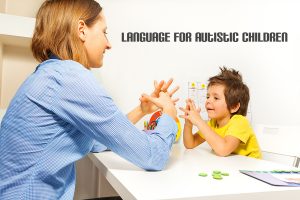
Technology can aid non-verbal children with ASD. For children with autism who do not develop spoken language, the use of supportive, visual communication aids is very helpful to develop communication and language skills. These augmentative and alternative communication (AAC) systems can be low-tech, such as Picture Exchange Communication System, or high-tech, such as specialized apps on an iPad. The American Speech-Language Hearing Association website provides helpful information about AAC.
Over Sensitivity

People with autism process sensory information differently. They may be overly or under sensitive to sounds, sights, tastes and touch. This may affect their willingness to wear certain clothes, eat certain foods, or tolerate certain sounds (such as vacuum cleaners, loudspeakers, or even the sound made by fluorescent lights). Children with autism may “hear” or experience discomfort from sounds or visual frequencies that their neurotypical peers don’t even notice.
Special, focused interests are common for people with autism. They often have very strong interests in a specific topic, from science to transportation to superheroes. While the topic itself can vary widely between individuals, they usually have extensive knowledge and may talk about the topic of interest often.
Anxiety is also connected with Autism

Many people with autism experience anxiety. If your child with autism is showing signs of worry, fear, excessive concerns, or other forms of anxiety, discuss this with your child’s doctor as there are interventions that can help.
Understanding a disease is always necessary if you wish to get the timely treatment of the same. gathering proper knowledge and understanding of Autism is what can assist you in fighting with the disease. If you find someone who is suffering from the same then it is necessary to take the necessary consultation and that too on time. Dr. Shashi Bhushan is one of India’s top trusted psychiatrist and the best doctor for autism treatment in Delhi. You can contact Dr. Bhushan for the best treatment. With the years of experience in the industry, you will get the best assistance from him.